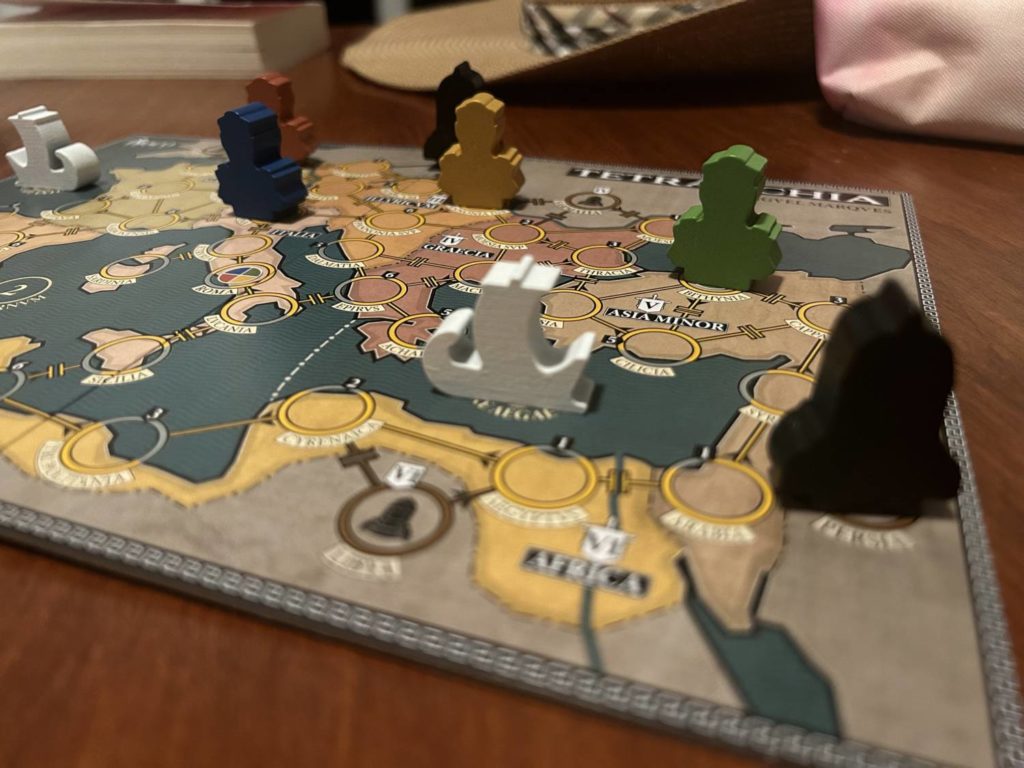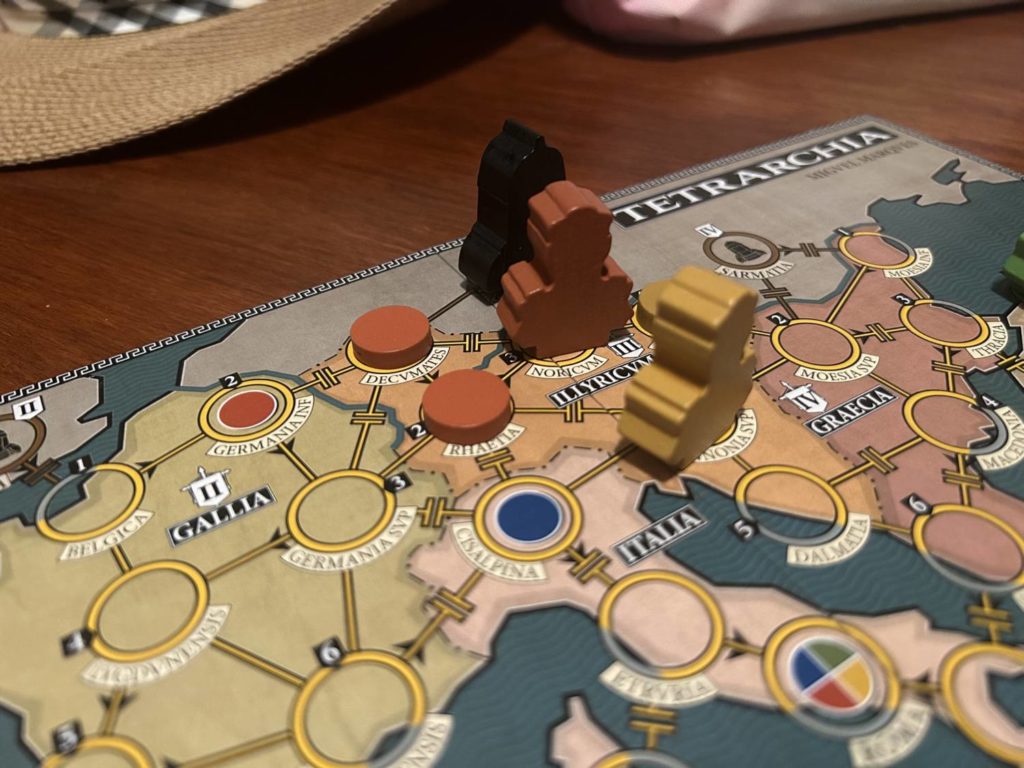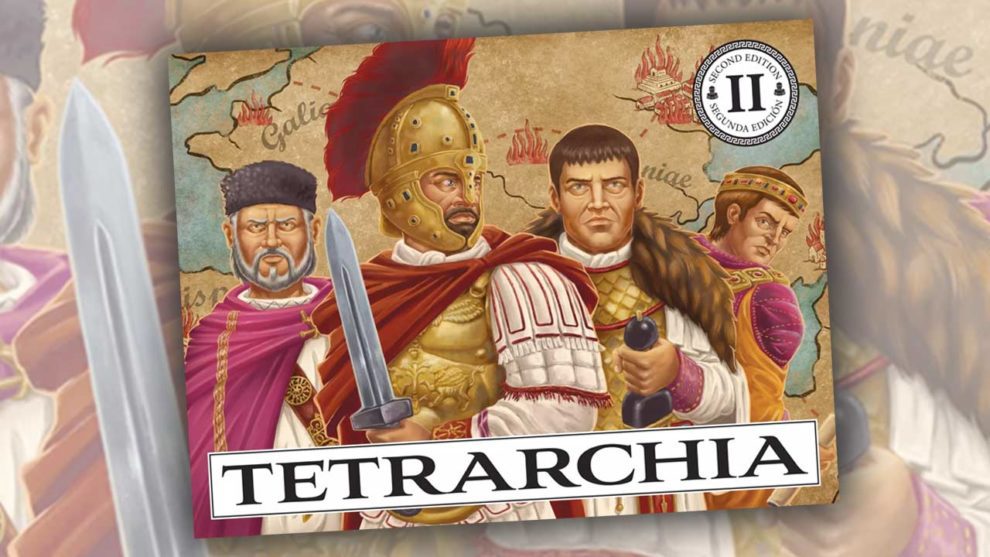The Tetrarchy was the governing authority that ruled over the Roman Empire from approximately 300-350 CE. A short and rough summation: Rome had been experiencing all variety of issues. The Empire was crumbling, and fast. There were dozens of claimants to the title of Emperor, the borders were under siege, the currency was rapidly devaluing. I don’t think it would be unfair to describe things as going poorly.
The Emperor Diocletian, having established himself as the only legitimate candidate, decided in 286 to promote Maximian, his Caesar (the title, not the person), to co-emperor. They, in turn, appointed two Caesars. It was hoped that dividing the responsibilities of the empire between these four united individuals would solve many of Rome’s problems. It worked, for a little while, until those four men were no longer in power and their successors engaged in civil wars with one another.
There are no lessons to draw from any of this.

“Autokratoria” Is Greek for “Empire”
Tetrarchia is a cooperative game in the tradition of Pandemic. Instead of fighting diseases, players work to secure the borders of the Roman empire while fending off Barbarians. The round structure alternates between the Roman Phase, when one of the four tetrarchs performs actions, and the Barbarian Phase, when nothing good happens.
As opposed to a set number of actions each turn, you have six Imperium Points (IP) to spend however you see fit. Moving along roads (1 IP) is less laborious than climbing a mountain (2 IP). Subduing Unrest (1 IP) takes less time and energy than Subduing a Revolt (2 IP). It all makes sense.
If Unrest is allowed to percolate into a Revolt, you run the very real risk of Barbarian incursion. These are not fun, they spread like wildfire, and they’re a pain to push back. If you can help it, don’t suffer a Barbarian incursion.
Victory comes with securing the borders. Defeat comes with, well, I’ll say this: Defeat comes a lot in this game. Tetrarchia offers a variety of difficulty settings. As the manual proudly announces, there are 81 different difficulty levels, and they’re all easy to implement. None of them add extra rules, they just change the setup. Based on my experiences with a fully Medium game, the High difficulty levels must be punishing.

“Pandemus” Would Have Been the Easier Joke, I See That Now
If you have ever played a co-op game along the lines of Pandemic or Sub Terra, you have played Tetrarchia. There’s nothing here that’s new, nothing here that’s going to blow your mind. Dice rolls determine where trouble appears, which will frustrate some players. Part of Pandemic’s beauty as a system is that you have a general sense of where trouble is likely to pop up again, even if your information isn’t perfect. Not so here.
The production is sterling, with a good manual, a small box, and wooden components. The various markers stand out against the board, making the state of things easy to read. I also want to take a moment to appreciate the game’s brevity. Rome may not have been built in a day, but Tetrarchia plays in about thirty minutes, assuming you survive that long. It plays from 1-4, though I think it’s best at 1. Individual decisions aren’t interesting enough to make this a compelling space for multiple minds to meet. The fun comes from watching how the aggregate of your decisions come together to impact the board. I never thought of myself as a monarchist, but here we are.
If you are looking for a straightforward co-op game, you don’t mind a little luck, and you enjoy the theme, the new edition of Tetrarchia is exactly what you want it to be. No alarms, and no surprises. It has a much smaller footprint than many of its brethren, which I always appreciate.











Add Comment